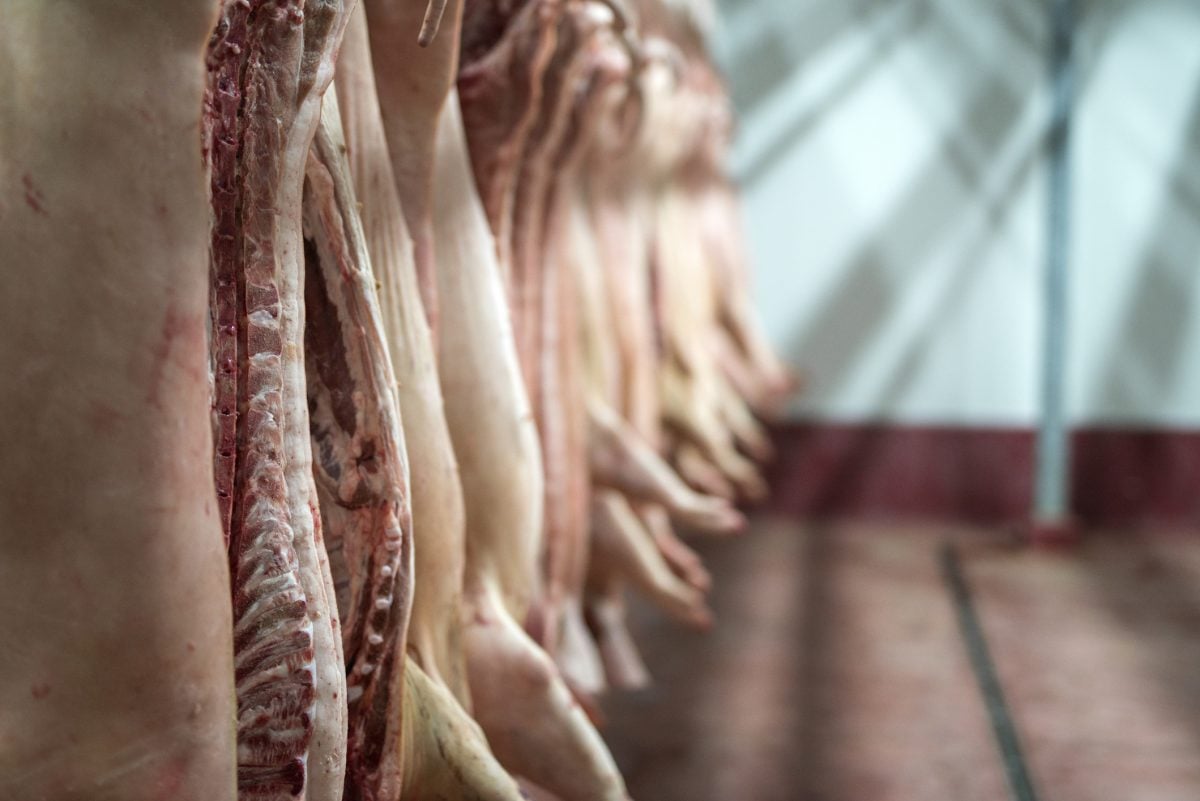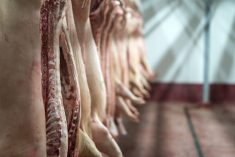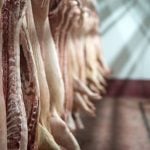Egypt plans to start rationing subsidized bread, a minister said on Tuesday, taking a risky step to curb the budget deficit by restricting supplies of cheap loaves vital to the poor.
The government will start rationing “after two months,” Supply Minister Bassem Ouda said. Trials of a rationing system using electronic smart cards will begin in the restive Suez Canal city of Port Said, and its suburb, Port Fouad.
Food supply has long been an explosive issue in Egypt, which is struggling to secure an International Monetary Fund (IMF) loan as parliamentary elections approach. Rising prices are being passed on to hard-pressed consumers and shortages have already provoked discontent.
Read Also

U.S. livestock: Cattle slip back, hogs gain
Chicago cattle futures slipped back on Friday after Thursday’s pause. Hog futures crept upward. Most-active December live cattle futures closed…
The change means anyone wishing to buy subsidized loaves will need a ration card — to which all Egyptians are entitled, but which the better-off have usually let lapse. Ouda did not say how many loaves citizens would be entitled to.
“Every ruler of Egypt has resisted cutting these subsidies because of fears of social unrest,” said Elijah Zarwan, a Cairo-based analyst.
“It’s clear that the subsidy system is sick, the economy is sick. But the cure in this case may be as painful as the disease.”
Curbs on bread subsidies provoked riots in 1977 and Egyptians are now angry about falling living standards as the economy heads into crisis under a new, Islamist leadership since the overthrow of president Hosni Mubarak two years ago.
The cheapest subsidised loaves are sold for five piastres, or less than one U.S. cent. As recently as 2008, Mubarak faced protests over bread shortages.
Cheap bread
Though Egyptians are technically each entitled to three subsidized loaves a day, according a report by the government and the World Food Programme last year, there are in practice no curbs on how much of the cheap bread people can buy.
Cutting subsidies is seen as vital for Egypt to secure the US$4.8 billion loan it is seeking from the IMF, which held talks with the government this week.
Tempers are already rising over higher prices. Bakers are threatening to strike, accusing the government of owing them 400 million pounds (US$59 million) in overdue subsidies. Ouda said on Monday the bakers would face legal action unless they called off the strike action.
Abdullah Ghorab, head of the bakers’ association which represents 25,000 private bakeries across the country, said Tuesday that imminent strike action had been postponed as they seek a meeting with the prime minister in two days’ time.
Around 200 bakers protested outside the supply ministry on Tuesday, saying the government wanted them to sign a contract that would set the price for subsidized flour at a level they found too high.
“If they don’t change this, we will close our shops,” bakery owner Mohamad Sharaf said. “We will not be able to work because we will not pay out of our own pockets.”
The bakers, who had travelled to Cairo from around Egypt, also complained of corruption in the bread sector. Rising fuel and ingredient costs have hit their businesses hard, bakers say.
The government spends over US$5.5 billion a year on food subsidies, which also cover items such as rice, oil and sugar. A slide in the Egyptian pound’s value is pushing up the bill, as much food has to be bought for dollars on international markets.
Livestock feed
Analysts say there is a large amount of waste in Egypt’s bread programme and some farmers give subsidized loaves to their livestock as they are cheaper than animal feed.
Wheat imports are down sharply this year as the economic crisis makes it harder for Egypt to arrange payments; between Jan. 1 and Feb. 20, it bought around 235,000 tonnes, roughly a third of what it purchased in the same period a year ago.
Supply minister Ouda told the state news agency MENA that subsidized bread and cooking gas would be added to the list of staples made available to Egyptians below market prices under a state rationing system.
The cities earmarked for the bread rationing trial, Port Said and Port Fouad, have seen violent protests in recent weeks over death sentences handed down on local soccer fans for their role in a stadium riot last year when more than 70 people died.
Cairo analyst Zarwan said he expected the government to make sure the smart card system was working properly before trying to ration bread:
“The number of people who depend on subsidized bread is enormous,” he said. “If the people who depend on it are no longer able to get it, the response would be terrifying to consider.”
— Tom Perry and Asma Alsharif report for Reuters from Cairo.














